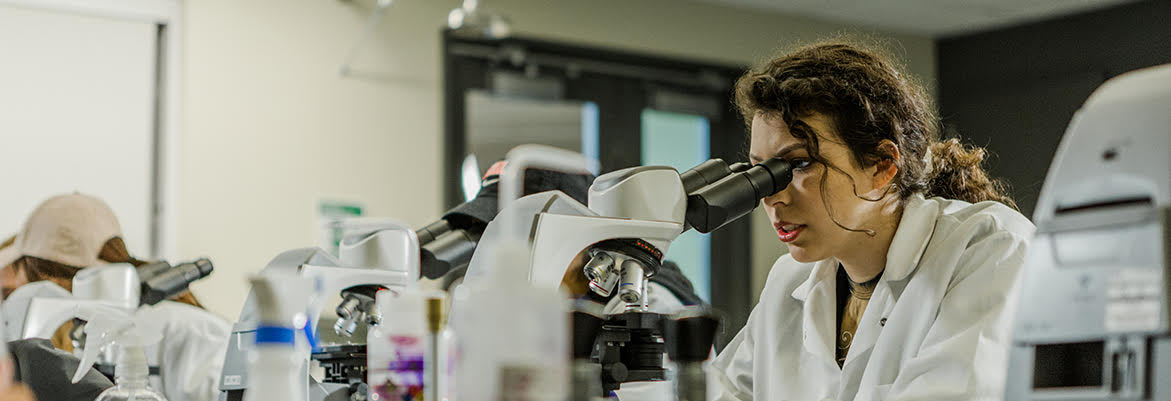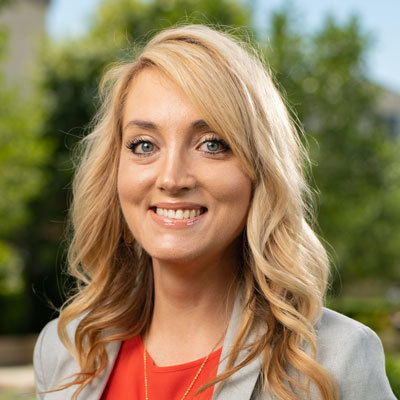Bachelor of Science in Public Health
Turn your passion for health into a promising career as a public health education specialist, healthcare administrator, health researcher, community health worker or any other number of healthcare and public health positions with a bachelor’s degree in public health from Biola University. A public health major will prepare you to serve many essential roles in the growing healthcare and wellness industries, while also improving your earning and kingdom impact potential in one of the most vital areas of society today. Those who finish the B.S. in Public Health program at Biola become professionals equipped to:
- Assess a population and create a health education intervention
- Conduct a healthcare policy evaluation
- Plan a health intervention initiative
- Prepare a health initiative budget proposal
- Present to a public health professional audience
- Craft health policies and guide public health programs
- Track and prevent the spread of diseases (disease prevention)
- Create educational programs to encourage optimal nutrition, exercise, wellness and much more
Wherever they serve, students who leave Biola with a bachelor's degree in public health are public health professionals ready to promote and care for the health and well-being of individuals and communities.
In Biola’s B.S. in Public Health major, you will gain the broad academic training, research experience and practical skills needed to flourish in this highly in-demand field. Whether you plan to pursue graduate school or move directly into a healthcare-related career as a public health professional, a Bachelor of Science in Public Health from Biola offers you the flexibility you need to pursue a wide range of opportunities.
Biola’s Public Health degree program offers several key advantages:
- The public health major provides rigorous academic and practical experiences based on Biblical principles to prepare students for careers in various aspects of public health, including health care systems, health care policy and administration, occupational and environmental health, health promotion, and global health.
- The curriculum is designed with a foundation of core public health concepts, basic sciences and behavioral health, focusing on public health principles and practice.
- In addition, there are three concentrations within the public health major that allow students to (1) have an emphasis on Global Health, (2) prepare for Pre-Health Professional graduate programs or (3) complete both a B.S. and an MPH on an accelerated track.
- The major includes quantitative and qualitative coursework that equips undergraduates with a broad understanding of the discipline, preparing them for careers in government health agencies, healthcare systems and non-profit organizations, as well as graduate degree programs including the MPH, M.D., DVM, Pharm.D. or Ph.D. in health disciplines.
- Small class sizes offer you direct access to professors with real-world experience and expertise across many different healthcare fields.
- The public health major is taught from a Christian perspective, equipping you to be a skilled professional who cares for the holistic well-being of individuals and communities.
- A required capstone project will allow you to gain valuable hands-on public health field experience, providing students with a foundation for planning a preventative community health initiative and creating tangible reports and products to present to prospective employers, while earning your undergraduate degree.
- Be mentored by expert faculty who integrate their Christian faith into their lives as researchers, teachers and ministers in local or global communities. Students have opportunities to be involved in directed research with faculty, participate in presentations at various conferences and co-author peer-reviewed journal articles. Learn more about our faculty and student research.
Concentrations
- Global Health
Global health is defined as the study, research and practice on improving health and achieving health care equity for communities worldwide. This concentration will focus on the prevention and intervention of health issues at the population level, and involve the integration of disciplines within and beyond the health sciences –– community health, epidemiology, health promotion, biology, statistics and intercultural studies to name a few.
Some career outcomes include: Certified Health Educator, Health Director, Health Administrator, Public Health Specialist, Community Health Worker, Global Health Worker, Public Health Program Manager, Public Health Policy Analyst, Nonprofit Coordinator, International Health Program Manager and Community Health Outreach Associate.
- Master of Public Health (Accelerated Master’s Program)
- Pre-Health Professions
The pre-health profession concentration will prepare public health students for the following graduate and professional programs:
- Pre-Medicine
- Pre-Veterinary Medicine
- Pre-Dental
- Pre-Optometry
- Pre-Pharmacy
- Pre-Physician Assistant
- Pre-Podiatry
Each of the listed heath profession tracks will have slightly different prerequisite courses, which students in the pre-health profession concentration will take, and faculty advisors will direct students in meeting the requirements.


